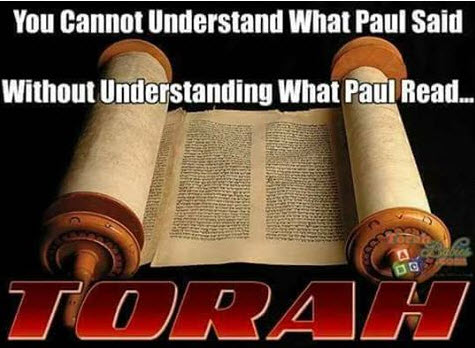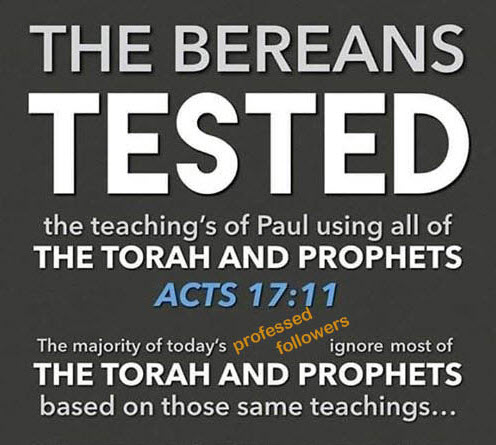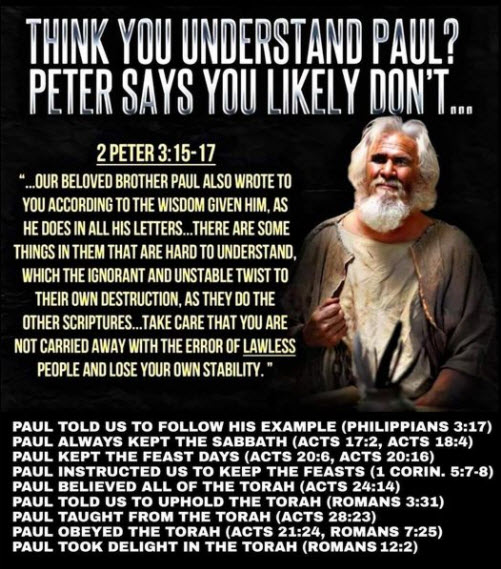Decoding Paul: Grace, Law, and Lying Pen of Scribes
Decoding Paul:
Grace, Law, and Lying Pen of Scribes
Question:
Why are Paul’s writings so difficult to understand? I can relate to Peter’s warning. He noted that Paul’s teachings are hard to grasp, as they are often interpreted in ways that seem to contradict the Torah. Many use Paul’s words to argue that the Torah has been abolished, yet this conflicts with Yahusha’s clear statement that not one part of the Torah would be taken away.
It is also intriguing that, although there were twelve apostles, Paul authored more books in the New Testament than anyone else. I do not intend to be irreverent, but why does he hold such a dominant place in the canon Украина #98312663 , nike running tank tops women cute , Nike air force 1 worldwide white/green женские кроссовки найк аир форс — цена 1700 грн в каталоге Кроссовки ✓ Купить женские вещи по доступной цене на Шафе while remaining so complex and widely misinterpreted? Furthermore, his teachings on obedience to government raise additional questions.
I recognize that these concerns are not new, and I imagine you have pondered them as well. As I seek truth, I find myself increasingly drawn to Yahusha’s words and the teachings of the Old Testament prophets. I do not worship man, and it is not unreasonable to consider whether deception could have influenced parts of Scripture. While I appreciate much of what Paul says, he is often cited as the primary reason people believe the Torah is obsolete.
So, did Paul truly abolish the Torah, or did he uphold it? This question deserves careful study and honest reflection.
Answer:
There are several well-founded explanations for the apparent contradictions in Paul’s writings. However, before exploring these, let us first establish a solid foundation of truth concerning the Ten Commandments, Torah Law, and Grace.
These explanations take into account historical, linguistic, and theological perspectives:
Three Pragmatic Distinctions between the Ten Commandments, the Torah Law, and Grace, along with Their Purpose:
- Ten Commandments = Yahuah Alahim’s Eternal Standard of Righteousness from which mankind has fallen. This existed in eternity’s past, continues to exist in the present, and will continue in eternity’s future. It is Eternal and forever the manifest character of the Yahuah Alahim, the Creator of the Universe.
- Torah Law = The pathway, mechanism, and promise of Salvation set forth to restore sinners back to Yahuah Alahim, the Most High and His Eternal Standard of Righteousness. 1) By instructing us on how far we have fallen from His Righteous Standard. 2) He instructed us how to synchronize our Soul Temples to His by honoring His ordained sacred: New Moon Days, lunar Sabbaths, and lunar appointed Feast days. In this way, we have a part to play through synchronized faithfulness to keeping His ordained holy days that are prophecies of the time-centered ministry of the Messiah on our behalf. In this way, we show the Father our heart’s desire and intention to be restored to His Eternal Standard of Righteousness.
- Grace = The fulfillment of the promise of complete restoration to Yahuah’s Eternal Standard of Righteous. Grace only comes through the preordained provision of the Messiah’s shed blood for us. He alone is the provision and substitute, the long promised Messiah, the Lamb of Alahim. He alone took upon Himself our confessed sins and died the second death in our place so that we may have eternal life. This provision of Grace is only applied to those who seek forgiveness for sin and choose faithfulness to the instructions and pathway set forth in the Torah Law. When these criteria are met, Grace is applied. While He has made provision for all to be saved through His blood sacrifice, only those who reach out and accept the provision that comes with criteria will receive it.
“But as for you, stand here by me, and I will speak unto thee all the 1) commandments, and 2) the statutes, and 3) the judgments, which thou shalt teach them, that they may do them in the land which I give them to possess it. You shall observe to do therefore as Yahuah your Alahim/Elohim has commanded you: You shall not turn aside ir jordan 11 bred game worn 1996 finals auctio to the right hand or to the left. You shall walk in all the ways which Yahuah your Alahim/Elohim has commanded you, that you may live, and that it may be well with you, and that you may prolong your days in the land which you shall possess.” Deuteronomy 5:31-33
The Ten Commandments have existed from Eternity past with Yahuah Alahim. But the Torah Law and Grace never existed until sin entered and a plan of restoration was implemented. Therefore, the Torah Law and Grace are a package deal for sinners, an all-inclusive set of criteria that must be met in order to be saved.
The Torah Law and Grace Work Together. Paul is not suggesting that the Torah Law is obsolete but that it functions as a mirror to expose sin, leading people to repentance and Messiah’s Grace. The Torah Law reveals the disease (sin), while Grace through Yahusha provides the cure and the power to walk in righteousness.
Thus, rather than abolishing the Torah Law, Grace upholds it by enabling believers who are covered by His blood to live according to its righteous standard (Romans 3:31 – “Do we then make void the law through faith? God forbid: yea, we establish the law.”).
The Torah Law and Grace are the two sides of the same coin. One cannot exist without the other. One is the Promise, and the other is the Provision to restore sinners back to the Eternal Standard of Righteousness. Refer to Law vs. Grace—An Oxymoron.
The following explanations take into account historical, linguistic, and theological perspectives:
-
Misinterpretation Due to Translation & Context
- Many of Paul’s letters were written in Greek, but they contain Hebrew thought patterns, which can lead to misunderstandings in translation.
- Paul often uses words like “law” (Greek: nomos) in different ways—sometimes referring to the Torah, sometimes to human traditions, and sometimes to the law of sin and death as contained in the Ten Commandments (Romans 8:2). Without context, readers assume he is always speaking against the Torah Law or the Ten Commandments.
-
Paul’s Opponents & Specific Audiences
- Paul addressed diverse audiences—Jews, Gentiles, and mixed assemblies—all of whom had different perspectives on the Torah Law.
- Some of his letters combat legalistic Pharisaic teachings that misapplied the Torah, while others affirm obedience to Yahuah’s Ten Commandments law.
- For instance, in Galatians, he confronts those who taught circumcision as necessary for salvation, but in Romans 3:31, he upholds the Torah, saying, “Do we then nullify the (Torah) law through faith? May it never be! On the contrary, we establish the law.”
-
The Difference Between Justification & Sanctification
- Paul teaches that justification (being made right before Yahuah Alahim) is by faith in the Messiah, not by works of the Law (Romans 3:28, Galatians 2:16).
- However, he also teaches that obedience to the Torah Law remains vital for sanctification (Romans 6:1-2, 1 Corinthians 7:19).
- Ephesians 2:8-10 highlights this balance: salvation is by grace, but believers are “created in Yahusha haMashiach (Messiah) for good works.”
-
Paul’s Use of the Phrase “Under the Law”
- The phrase “under the law” is often misunderstood. Paul uses it to describe being under the penalty of the curse of sin and death, not to reject the Torah Law itself.
- Galatians 3:13 states, “Messiah redeemed us from the curse of the law of sin and death,” meaning He removed the punishment for breaking it, not the Torah Law, which is the prescription unto salvation.
-
Paul’s Jewish Background and Torah Observance
- Paul kept the Torah Law, observed New Moon Days, lunar Sabbaths, and lunar appointed Feast days, and even took a Nazirite vow (Acts 21:24-26).
- He affirmed Torah Law observance multiple times, such as in Romans 7:12, “So then, the Torah Law is holy, and the commandment is holy, righteous, and good.”
-
Misuse of Paul’s Writings by Later Theologians
- 2 Peter 3:16 warns that Paul’s letters are difficult to understand and that some twist them “to their own destruction.”
- Many Christian church doctrines, influenced by anti-Torah interpretations, ignore Paul’s pro-Torah Law statements and emphasize only Grace.
- The early church, influenced by Greek and Roman thought, sought to separate itself from its Hebraic roots, leading to a distorted reading of Paul.
8. The Lying Pen of Deceitful Scribes
- The prophet Jeremiah warned about the corruption that arose from the lying pen of the scribes in his day, 600 years previously (Jeremiah 8:8). This raises an important question: Could similar alterations or misinterpretations have affected some of Paul’s writings or other passages in Scripture? Given historical influences and theological biases over time, it is certainly possible. Here is what Jeremiah had to say:
Verse 8 “How can we determine wise administrators for ourselves and the Torah Law and other prophetic teachings of Yahuah with certainty? Behold and know LIES have been instituted and maintained by the pen of deceitful scribes.
Verse 9 They have caused confusion and brought shamefulness with crafty skill and cunning and they have seized and damaged (destroyed) His Word. They have despised ir jordan 3 whataburger custom and rejected Yahuah with skillful shrewdness.” Jeremiah (YerimiYAH) 8:8-9 (Word Study Translation by TheCreatorsCalendar.com.)
- One of the most effective ways to dilute the depth of Scripture is through translation from one language to another. While some meaning is naturally lost in the process, intentional efforts to replace truth with falsehood can further distort the message. This makes it essential to seek the original text as closely as possible.
- At the end of the day, perhaps nothing short of researching each word one at a time in a Hebrew Dictionary/Concordance will restore what has been lost to Yahuah’s divine TRUTHS and His original TIMES and LAWS. The prophetic promises were never fulfilled by earthly priests but only by the true Messiah, our sacrifice, and today, our abiding High Priest in the courts above.
List of Some of Paul’s Difficult Statements and Apparent Contradictions with Scripture’s Weight of Evidence
- 1 Corinthians 7:8 – “I say therefore to the unmarried and widows, ‘It is good for them if they abide even as I. But if they cannot contain, let them marry: for it is better to marry than to burn.’”
- 1 Corinthians 14:34 – “Let your women keep silent in the churches, for they are not permitted to speak; but they are to be submissive, as the Law also says. And if they want to learn something, let them ask their own husbands at home, for it is shameful for women to speak in the assembly.”
- 1 Corinthians 6:12 “All things are lawful for me, but all things are not helpful. All things are lawful for me, but I will not be brought under the power of any.”
- 1 Corinthians 9:22 “…I have become all things to all men, that I might by all means save some.”
- Romans 13:1-7 “Let every soul be subject to the governing authorities. For there is no authority except from Alahim, and the authorities that exist are appointed by Alahim. Therefore, whoever resists the authority resists the ordinance of Alahim, and those who resist will bring judgment on themselves, etc.”
- Galatians 5:2-4; Galatians 6:12-15; Romans 2:25-29 and 1 Corinthians 7:18-19. Paul’s teachings do not abolish circumcision but refute the idea that circumcision is necessary for salvation. He emphasizes faith, obedience, and circumcision of the heart over outward rituals.
- Colossians 2:11-17 Blotting out the handwriting of ordinances against us. This set of verses has been widely misinterpreted, often leading to the erroneous belief that Paul was advocating for the abolition of the Torah Law of Instruction and the Eternal Standard of Righteousness, which is the Ten Commandments, along with all the lunar appointed Holy Days. However, a closer examination within its historical and Scriptural context reveals a vastly different intent. It reveals the redemptive work of Yahusha haMashiach in removing the burden of sin, not the Ten Commandments or any part of the Torah Law. Rather, the removal of the burden of sin has two parts: 1) the forgiveness of confessed sin and 2) the penalty for sin, which is referred to as “the wages of sin.” Both of these are blotted Yeezys – Jordans, Musee-jacquemart-andre News, Jordan Essentials Statement Hoodie – release dates & nike. out by the sacrificial death of our beloved Messiah for those who accept His blood sacrifice, which removes the record of their sin. In this way, they have been made white and purified in the blood of the Lamb. Blotting Out the Handwriting.
Refer to the article, The Lying Pens of Deceitful Scribes.
Conclusion
Paul’s writings are largely confused due to translation issues, theological bias, a misunderstanding of his terminology, and the lying pen of deceitful scribes who have added words that Paul never taught. We can know which parts were added as they are out of harmony with the Scripture’s Torah Law and the teaching of Yahusha haMashiach. Any statement in Scripture in which no second or third witness can be found in the first five books of the O.T. (Torah) is likely the work of deceitful scribes.
For the most part, Paul’s underlying message aligns with the Torah Law, the Ten Commandments, and the Grace that comes through Yahusha haMashiach (the Messiah) and His teachings. For the Messiah taught, “Do not think that I came to abolish the Torah Law or the Prophets: I am not come to destroy but to fulfill” (Matthew 5:17).







